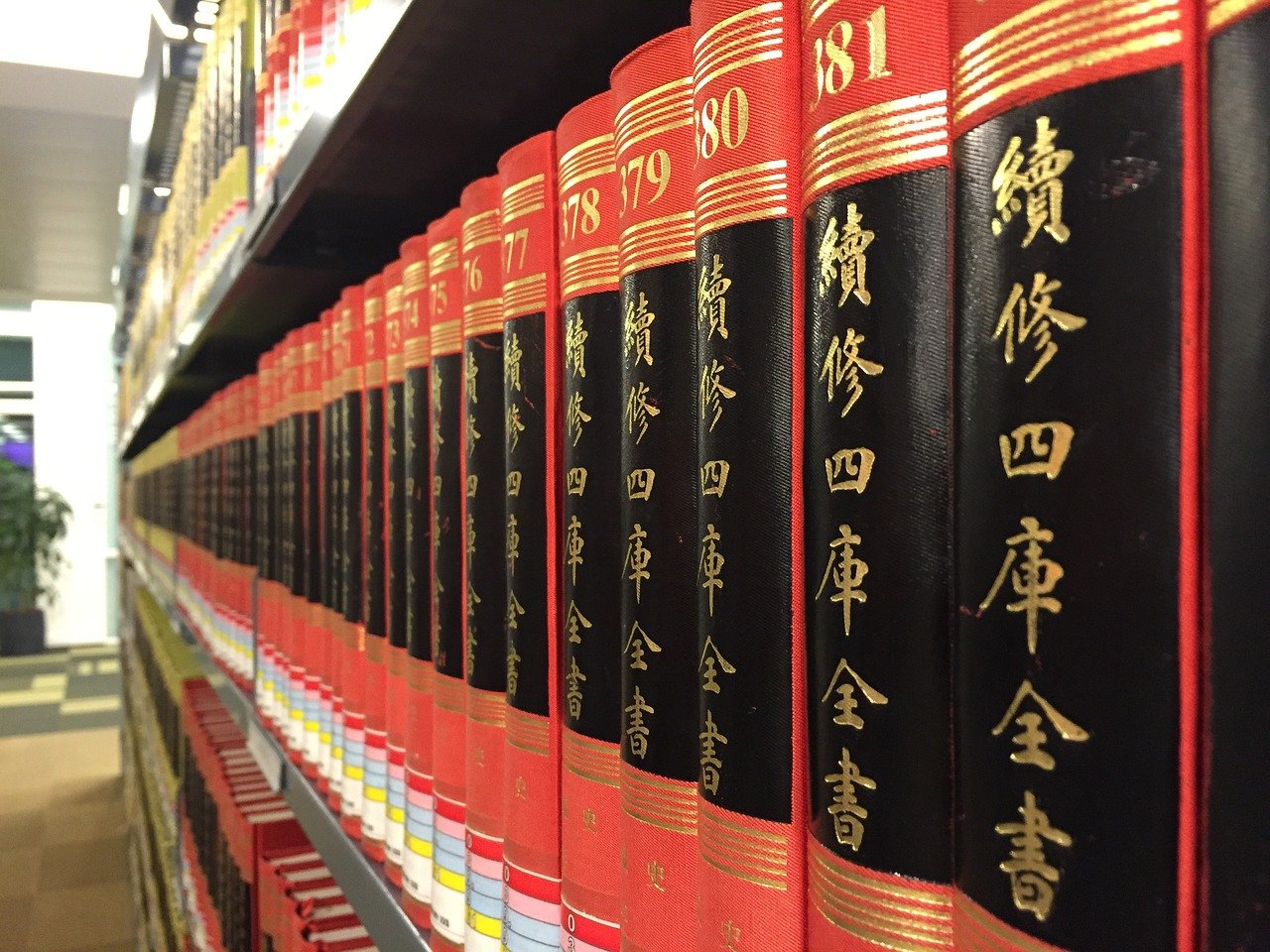
Once upon a time, learning Chinese and finding Mandarin Chinese resources meant either moving abroad or committing to expensive, boring, location-dependent classes.
Thanks to the advent of the Internet, new business models, user generated content, and clever crowdsourcing, today’s learner has unprecedented access to free resources, cool tools, and native speakers no matter where in the world one happens to live.
With a little creativity and discipline, that smartphone in your pocket is all you need to master all four Chinese language skills: listening, speaking, reading, and writing.
The problem now is not a lack of tools. But an overabundance.
Instead of wasting your precious study time trying to find the “right” tools, just pick a few of my pre-approved resources below and get busy learning. I have spent hundreds (perhaps thousands!) of hours over the past 5 years trying out different tools and resources so you don’t have to.
But no matter what you choose, always let interest, curiosity and fun guide the way.
By the way, if you want to learn Chinese fast and have fun, my top recommendation is Chinese Uncovered which teaches you through StoryLearning®.
With Chinese Uncovered you’ll use my unique StoryLearning® method to learn Chinese through story… not rules.
It’s as fun as it is effective.
If you’re ready to get started, click here for a 7-day FREE trial.
Note: This resource page has been assembled by my friend John Fotheringham from Language Mastery. If you appreciate the thoroughness of this page, you will absolutely love his outstanding guide to learning Chinese: Master Mandarin.
Table Of Contents
1.Mandarin Listening &Speaking Resources
- Mandarin Tutors & Language Exchanges
- Mandarin Pronunciation Tips & Tools
- Mandarin Podcasts
- Mandarin Radio
- Mandarin Audio Courses
- Mandarin Audio Books
- Mandarin Music
- Mandarin Video Games
- Mandarin Videos, TV Shows & Music
- Custom Audio
2. Reading & Writing Mandarin Chinese Resources
- Mandarin Articles, Blogs & Reading Tools
- Chinese Character Tips & Tools
- Chinese Comic Books
- Chinese Magazines
- Chinese Newspapers & News Sites
- Chinese Books & Literature
- Typing in Chinese
- Writing Correction & Pen-Pals
- Mandarin Dictionaries
- Mandarin Encyclopedias
- Mandarin Phrasebooks & Example Sentences
- Mandarin Grammar Guides & Tips
- Browser Extensions
- Search Engines in Chinese
- Changing Your Device Display Language to Chinese
1) Mandarin Listening & Speaking Resources

Listening is the primary language skill upon which all others rest. Many language learners make the mistake of investing too much time reading and not enough time listening and speaking.
You get better at what you practice, so this imbalance inevitably leads to the frustrating situation where you can easily recognize things when written down but struggle to understand words, phrases, and structures when spoken aloud.
To avoid this trap, use the following listening and speaking tools to maximize your exposure to spoken Mandarin each day.
Go to the Top
Mandarin Tutors & Language Exchanges
Getting consistent speaking practice with a native speaker, tutor, or teacher is arguably the most important, high-yield activity you can do to quickly improve your overall level in Chinese.
Speaking with a tutor gives you a contextual opportunity to apply what you’ve learned, helps identify where your holes are, and creates a safe environment to identify and correct mistakes.
Here are some of the best places to find native Mandarin speakers:
#1 LanguaTalk is our #1 recommendation for taking 1-on-1 Chinese lessons tailored to your needs. Languatalk's talented, native tutors will help you feel more comfortable speaking Chinese. Book a free trial here.
#3 GoEast is an online Chinese school based in Shanghai, teaching all levels and in all timezones. Their teachers work for one company, both on teaching techniques as well as the curriculum.
#5 Chinese Language Meetup Groups
Mandarin Pronunciation Tips & Tools
Developing accurate—or at least, comprehensible—pronunciation in Mandarin Chinese is one of the most important stages of your journey.
When it comes to making yourself understood, pronunciation often trumps grammatical accuracy, so spend as much time as you can getting things right in the beginning. Undoing bad pronunciation habits is far more difficult than creating them in the first place.
#9 “Toward Better Tones in Natural Speech” (Sinosplice)
#10″Tones in Mandarin Chinese” (East Asian Student)
#11 ChinesePod’s Pinyin App (iOS & android, free)
#12 Skritter – click here to get 10% off your first purchase (web, iOS & Android, $14.99/month)
Mandarin Podcasts
Audio podcasts are one of my favorite language learning tools since most are free, they cover a wide range of topics, can be downloaded to your smartphone or MP3 player for on-the-go learning, tend to be shorter in length, and sometimes include transcripts (you can always add your own to the MP3 file if they don’t).
Here are some of my favorite podcasts intended for Mandarin learners:
#15 Mandarin Chinese Lessons with Serge Melnyk
For more advanced learners, try listening to podcasts intended for native speakers. Here are a few places to look:
There are countless podcast apps to choose from these days on all the major platforms. Here are but a few of my favorites:
#23 PocketCasts ($4.99, iOS & Android)
#24 BeyondPod (free, Android)
#25 Podcasts (free, iOS)
Note that you can also use the two radio apps below to stream many podcasts.
Go to the Top
Mandarin Radio

While podcasts tend to be better suited for language learning than radio (since you can pause, go back, read transcripts, etc), radio can provide a good kick-back listening experience that doesn’t require as much active jockeying.
Radio programs also tends to be more closely tied to events of the day while podcasts usually focus on more evergreen topics.
Here are some great free sites for streaming Mandarin radio programs:
#26 Radio Taiwan International
#27 Taiwan Radio Stations on TuneIn
#28 Mainland China Radio Stations on TuneIn
And here are my suggested radio apps (which can also be used to stream many podcasts):
#29 TuneIn (iOS, Android, Windows Phone)
#30 Stitcher (iOS, Android)
Mandarin Audio Courses
For learners just starting out in Mandarin (or for those of you who have been learning for a while but still struggle with pronunciation), the following two audio courses are both excellent ways to tune your ears and mouth to the sounds of Mandarin, while also familiarizing you with essential words, phrases, and structures.
Mandarin Audio Books
Before I began learning languages, I thought audio books were only for the lazy or illiterate. How wrong I was!
Not only do audio books allow you to “read” as you do other things (commute, shop, do chores, etc.) but you can also use them in combination with print books or eBooks to build both your listening and reading skills.
Here are some places to find Mandarin audiobooks online:
#33 LibriVox (online, free)
#34 有声小说大全 (iOS Chinese eBook app, free)
Mandarin Music
Take a look at the Chinese word for music for a second: 音樂・音乐 (yīnyuè). The term literally means “sound fun”, a pretty apt description of music given how powerful it can be in language learning.
Not only is music inherently enjoyable, but rhythms and melodies can actually help improve retention and recall of new words, phrases, and structures. Here are some places to find Mandarin music:
#35 Top 10 Chinese Pop Singers
#36 Taipei Radio Stations on TuneIn
#37 Mandarin Music Artists on iTunes
Mandarin Video Games
Good game designers create just the right mix of challenge and reward to keep you coming back for more. This can be a bad thing of course if you are prone to addiction, but if used responsibly, can be a great way to ensure daily Chinese immersion.
#38 List of Video Games in Chinese
#39 A Brief History of Chinese RPGs
#40 Chinese Video Games Available on Amazon
#41 Yes Asia (go to the games section and search for “Chinese version”)
Mandarin Videos, TV Shows & Movies
Video is one of the best flavors of language learning input: 1) it provides valuable visual cues to help you figure out the context, 2) the story line help keep you engaged, and 3) many videos include subtitles. When you have a choice, I suggest using English subtitles in the early stages, transitioning to Chinese subtitles as you progress.
#42 FluentU (and don’t miss their upcoming iOS app)
#45 Tudou.com (both similar to YouTube)
#46 Mandarin Movies on Netflix (streaming)
Custom Audio
If you have text-only content you’d like to convert to audio, you can ask your tutor to record for you, use the power of crowdsourcing, or employee text-to-speech technology. Here are a few tools to help:
#48 Chinese Text-to-Speech Service
2) Reading & Writing Mandarin Chinese Resources

Although I consider listening and speaking to be the foundation of language acquisition, the important of reading and writing cannot be understated.
Learning to read Chinese can be intimidating with its plethora of 漢字・汉子 (hànzì, lit. “Han Chinese Characters”), but if you go about learning them in a systematic, adult-friendly way, you may just find that they are more approachable, more logical, and more fun than you would expect.
The key is to use “imaginative”—as opposed to “rote”—memory, coupled with extensive exposure to interesting texts you enjoy.
Mandarin Articles, Blogs & Reading Tools
There is no shortage of free Chinese reading resources and tools online today. Here are just a few to get you started:
#49 Ninchanese – fun, accessible online Chinese lessons
#50 Top Chinese Blogs & Bloggers
#55 Feedly (for subscribing to blogs)
#56 Evernote (for saving articles)
#57 Pocket (for saving articles)
#58 LingQ (for studying articles)
#59 Remembr.it – nice resource for Chinese learners, including a good dictionary with usage examples
For pop-up browser dictionaries, see “Browser Extensions” below.
Go to the Top
Chinese Character Tips & Tools
You will hear many people (including the Chinese themselves) go on and on about how difficult Chinese characters are to learn. Yes, just like learning to speak the language, learning to read and write Chinese takes time and effort.
But the task ahead is not nearly as arduous as you’ve been led to believe if you:
- focus on the highest frequency characters first
- learn the basic character building blocks (“radicals”)
- learn the phonetic and semantic clues radicals provide
- use creative mnemonics instead of rote memory
#60 Skritter (web, iOS & Android, $14.99/month)
#61 Remembering Simplified Hanzi: Book 1 or Remembering Traditional Hanzi: Book 1 (softcover, ≈$25)
#62 The Most Common Chinese Characters in Order of Frequency
#63 ”What do you know if you learned the most frequent Chinese characters?” (Confused Laowai)
#65 ”Kickstart Your Character Learning with the 100 Most Common Radicals” (Hacking Chinese)
#66 Phonetic Sets in Chinese Characters (Hanzi Craft)
Chinese Comic Books
With their vivid visuals, exciting stories, and relatively simple language usage, comics are one of the best reading tools available to Chinese learners. Here are some places to find them:
Magazines In Chinese
Magazines are another good addition to the Chinese learner’s arsenal as they provide short, topical reading input and are available for a wide range of topics. Here are some tools to find Chinese magazines that fit your interests:
#69 “Top 10 Most Popular Magazines in China” (China Whisper)
#70 List of Chinese Magazines (Wikipedia)
#71 Browse Chinese Magazines on YesAsia
Chinese Newspapers & News Sites

One of my guilty reading pleasures is comparing news articles from Mainland China and Taiwan. The juxtaposition of state controlled censorship on the one hand and market driven sensationalism on the other can be quite entertaining! And you get the added benefit of practicing both traditional Chinese characters and simplified characters.
#72 The New York Times (Chinese version)
#73 Mainland Chinese Newspapers Available Online
#74 Hong Kong Newspapers Available Online
#75 Taiwanese Newspapers Available Online
Chinese Books & Literature

For those wanting something more substantive than comics, magazines, and newspapers, you can choose from heaps of eBooks (many of which are free), bilingual texts, Chinese novels, and children’s books:
#76 Free Chinese books on Project Gutenberg
#77 Best selling Chinese Kindle books on Amazon
#78 Bilingual Kindle books on Amazon
#79 Prime-Eligible Chinese Paperbacks on Amazon
#80 Western children’s books translated into Chinese
#81 Bilingual Children’s Books
#82 Chinese Literature for Young Adults
Typing In Chinese
To type in Chinese, you just need to learn Hanyu Pinyin system (see “Mandarin Pronunciation Tips & Tools” section above) and add the appropriate keyboard or app on your device:
#83 About the Pinyin Input Method
#84 How to Type Chinese on iOS, Mac & Android
#85 How to Type Chinese on Windows
#86 Google Pinyin Input (Android, free)
Writing Correction & Pen-Pals
Though your writing skills will gradually improve with enough reading input and writing output, you can greatly speed your rate of improvement by getting direct feedback from native speakers. Here are 3 places to do just that:
#89 My Language Exchange’s International Pen-Pal Service
3) Mandarin Reference Tools

Last but not least, here are some useful reference tools to help you learn more about the Chinese language, make heads or tails of your Chinese listening and reading input, and better communicate with native speakers.
Go to the Top
Mandarin Dictionaries
Each of the following dictionaries have their advantages and disadvantages; just try out a few and see which work best for you:
#90 Pleco (web, iOS & Android, free with in-app upgrades)
#91 nciku (web & iOS, free)
#92 YellowBridge (web, free with ads)
#93 MDBG (web, free)
#94 Google Translate (web, iOS & Android, free)
#95 DK’s Mandarin Chinese English Bilingual Visual Dictionary (paperback, ≈$11)
#96 Oxford Beginner’s Chinese Dictionary (paperback, ≈$12)
For pop-up browser dictionaries, see “Browser Extensions” below.
Go to the Top
Mandarin Encyclopedias
For Chinese terms and concepts not found in the dictionary, use one of these free online encyclopedias:
#97 维基百科 (Wikipedia)
#98 百度百科 (Baidu Encyclopedia)
Mandarin Phrasebooks & Example Sentences
Phrasebooks are not just for travelers; they are in fact one the best sources of high-frequency, high-yield vocabulary and grammar patterns. Moreover, they allow you to use the “speak first, then point” method if your efforts to communicate fail (i.e. native speakers can just read the Chinese phrase printed in the book).
#99 Lonely Planet Mandarin Phrasebook & Audio CD
#100 Rough Guide Mandarin Chinese Phrasebook (with audio download)
Mandarin Grammar Guides & Tips
Contrary to what most language teachers will tell you, you don’t have to “study” grammar to “acquire” it. If you get enough exposure and practice, your brain will naturally make sense of a language’s underlying patters.
That said, the adult brain can help speed the assimilation process with a little strategic grammar study. The key here is to augment your input activities with grammar study, not the other way around.
Browser Extensions
Installing just a few free browser extensions can greatly improve your online language learning experience. Here are a few of the best:
#106 Zhongwen Popup Dictionary (Chrome)
#107 新同文堂 Traditional & Simplified Chinese Converter (Chrome)
Search Engines In Chinese
Using the Chinese version of your favourite search engine has two key advantages: 1) it shows more relevant results for Chinese language inquiries, and 2) provides extra Chinese input in and of itself since the menus, meta data, etc. are also in Chinese.
#108 Google Taiwan & Google Hong Kong
#110 Yahoo Taiwan & Yahoo China
Bonus: Changing Your Device Display Language to Chinese
Given how much time you spend in front of the screen, changing your operating system to display in Chinese will give you massive amounts of extra exposure to the language.
Well done for reaching the end!
I hope this will prove to be a useful collection of Mandarin Chinese resources – why not add it to your bookmarks right now so you can find it again when you need it?
By the way, if you want to learn Chinese fast and have fun, my top recommendation is Chinese Uncovered which teaches you through StoryLearning®.
With Chinese Uncovered you’ll use my unique StoryLearning® method to learn Chinese through story… not rules.
It’s as fun as it is effective.
If you’re ready to get started, click here for a 7-day FREE trial.
John and I recorded an in-depth interview on learning Chinese… I think you'll like it!

Olly Richards
Creator of the StoryLearning® Method
Olly Richards is a renowned polyglot and language learning expert with over 15 years of experience teaching millions through his innovative StoryLearning® method. He is the creator of StoryLearning, one of the world's largest language learning blogs with 500,000+ monthly readers.
Olly has authored 30+ language learning books and courses, including the bestselling "Short Stories" series published by Teach Yourself.
When not developing new teaching methods, Richards practices what he preaches—he speaks 8 languages fluently and continues learning new ones through his own methodology.














































